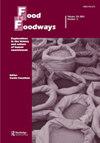Carceral nutrition: Prison food and the biopolitics of dietary knowledge in the neoliberal prison
IF 1.1
Q2 ANTHROPOLOGY
引用次数: 1
Abstract
Abstract Based on a case study of Washington State prison food policy and practice, this article traces the use of nutritionism as an enabling epistemology of mass incarceration in the neoliberal era in the United States. To develop this argument, the author develops the concept of carceral nutrition, or ideologies of food and eating that reduce complex relations of nourishment to biopolitical calculations of nutrition in the interests of discipline, punishment, control, and confinement. Under the pressures of neoliberal austerity, narrowly defined nutritionism ensures cheap sustenance and biopolitical control while maintaining a veneer of scientific legitimacy and liberal beneficence. This article also considers recent efforts to improve prison food through state-based reform and enhanced nutritional standards. These reforms, however, reinforce reductionary nutritionism and cede epistemic authority over “good” food to the carceral state. Drawing on the political theory of prison abolitionism, the author calls for non-reformist approaches to food justice that foster non-carceral relations of food and eating and support collective liberation and human flourishing.监狱营养:监狱食物和新自由主义监狱饮食知识的生物政治
摘要基于对华盛顿州监狱食品政策和实践的案例研究,本文追溯了营养主义作为美国新自由主义时代大规模监禁的一种使能认识论的使用。为了发展这一论点,作者发展了尸体营养的概念,或食物和饮食的意识形态,将复杂的营养关系简化为营养的生物政治计算,以利于纪律、惩罚、控制和禁闭。在新自由主义紧缩的压力下,狭义的营养主义确保了廉价的食物和生物政治控制,同时保持了科学合法性和自由主义的仁慈。本文还考虑了最近通过国家改革和提高营养标准来改善监狱食品的努力。然而,这些改革强化了还原营养主义,并将对“好”食物的认识权威交给了尸体国家。借鉴监狱废奴主义的政治理论,作者呼吁采取非改良主义的粮食正义方法,促进粮食与饮食的非肉体关系,支持集体解放和人类繁荣。
本文章由计算机程序翻译,如有差异,请以英文原文为准。
求助全文
约1分钟内获得全文
求助全文
来源期刊

Food and Foodways
ANTHROPOLOGY-
CiteScore
2.20
自引率
0.00%
发文量
16
期刊介绍:
Food and Foodways is a refereed, interdisciplinary, and international journal devoted to publishing original scholarly articles on the history and culture of human nourishment. By reflecting on the role food plays in human relations, this unique journal explores the powerful but often subtle ways in which food has shaped, and shapes, our lives socially, economically, politically, mentally, nutritionally, and morally. Because food is a pervasive social phenomenon, it cannot be approached by any one discipline. We encourage articles that engage dialogue, debate, and exchange across disciplines.
 求助内容:
求助内容: 应助结果提醒方式:
应助结果提醒方式:


